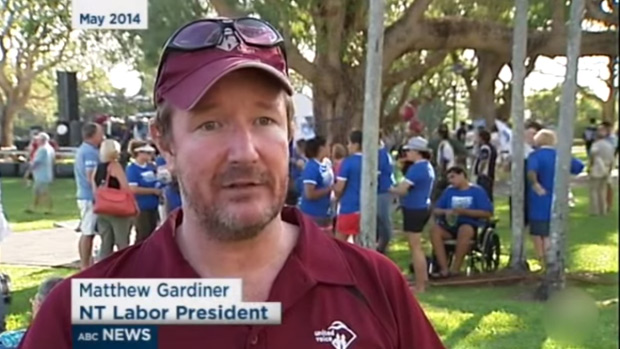Matthew Gardiner: Australian politician 'joins fight against IS'
Labor politician reportedly travelled to Syria to join Kurdish fighters, but some analysts question validity of story

A free daily email with the biggest news stories of the day – and the best features from TheWeek.com
You are now subscribed
Your newsletter sign-up was successful
An Australian politician has reportedly left the country to join the ranks of Kurdish forces fighting against Islamic State militants in Syria, according to media reports.
Matthew Gardiner, former president of a branch of the Australian Labor Party, left the country to connect with Kurdish fighters, claimed ABC on Sunday, but some commentators have suggested that the broadcaster's report is based largely on speculation without much supporting evidence.
So what is known about Matthew Gardiner and why did he leave Australia?
The Week
Escape your echo chamber. Get the facts behind the news, plus analysis from multiple perspectives.

Sign up for The Week's Free Newsletters
From our morning news briefing to a weekly Good News Newsletter, get the best of The Week delivered directly to your inbox.
From our morning news briefing to a weekly Good News Newsletter, get the best of The Week delivered directly to your inbox.
Who is Matthew Gardiner?
Matthew Gardiner was born in Sydney and grew up to become a soldier with the Australian army serving as a combat engineer in Somalia in the early 1990s. After he returned, Gardiner went into politics, joining the Australian Labor party. He later became the head of Labor in the Northern Territory and was also the secretary of the hospitality, childcare and emergency services union United Voice. But his association with both organisations was withdrawn following his disappearance. Gardiner has left behind his wife, Andrea Gardiner, and three young children.
Why did he leave Australia?
It is not yet clear why Gardiner decided to leave for Syria. The Australian Federal Police have refused to discuss any detail of what they describe as an "ongoing investigation", but Australian media have reported that the politician left "intending on joining Kurdish fighters".
A free daily email with the biggest news stories of the day – and the best features from TheWeek.com
The ABC notes that Gardiner recently befriended a woman on Facebook whose page "is littered with support for Kurdish militias fighting Islamic State". So far, however, there is no evidence "that it is Gardiner's intention to engage in 'hostile activity'" the Sydney Morning Herald says.
One former colleague, Luke Whitington, said that he was surprised by Gardiner's disappearance but added that if the politician had decided to join Kurdish fighters, he respected his decision.
"There's... a feeling of admiration for someone being so principled as to go and fight for what he sees as a just cause in stopping Isis Daesh [Islamic State]," he said.
However, in Whitingon's view, Gardiner would have thought very carefully before deciding to leave Australia. "He's not a kid... I don't think he would have done any of this without thinking about it." Whitington said. "People who know him from the Northern Territory know he's passionate, but he's also level headed and a professional bloke."
Is it legal to join the fight against IS?
A spokesperson for Attorney-General George Brandis clarified that it is illegal for Australian citizens to support any armed group in Syria.
"It is illegal to fight in Syria for either side of the conflict," the spokesperson said. "If you fight illegally in overseas conflicts, you face up to life in prison upon your return to Australia. We know there are some Australians who think they've made the right choice in becoming involved in overseas conflicts, but that choice only adds to the suffering in Syria and Iraq and it's putting those Australians and others in mortal danger."
How has the media reacted?
Reaction to Gardiner's decision has been mixed. The Sydney Morning Herald's Rachel Olding notes that "friends have been left dumbfounded as to why the dedicated father and vocal unionist would suddenly leave to join the deadly conflict."
But other publications have praised Gardiner for his bravery. "There is much to admire in Mr Gardiner's reported move," says Spiked. "He is, it seems, acting on his convictions, putting himself on the line for what we can assume to be his pretty stand-up beliefs: that the Islamic State is a backward and dangerous force and the Kurds deserve solidarity and help".